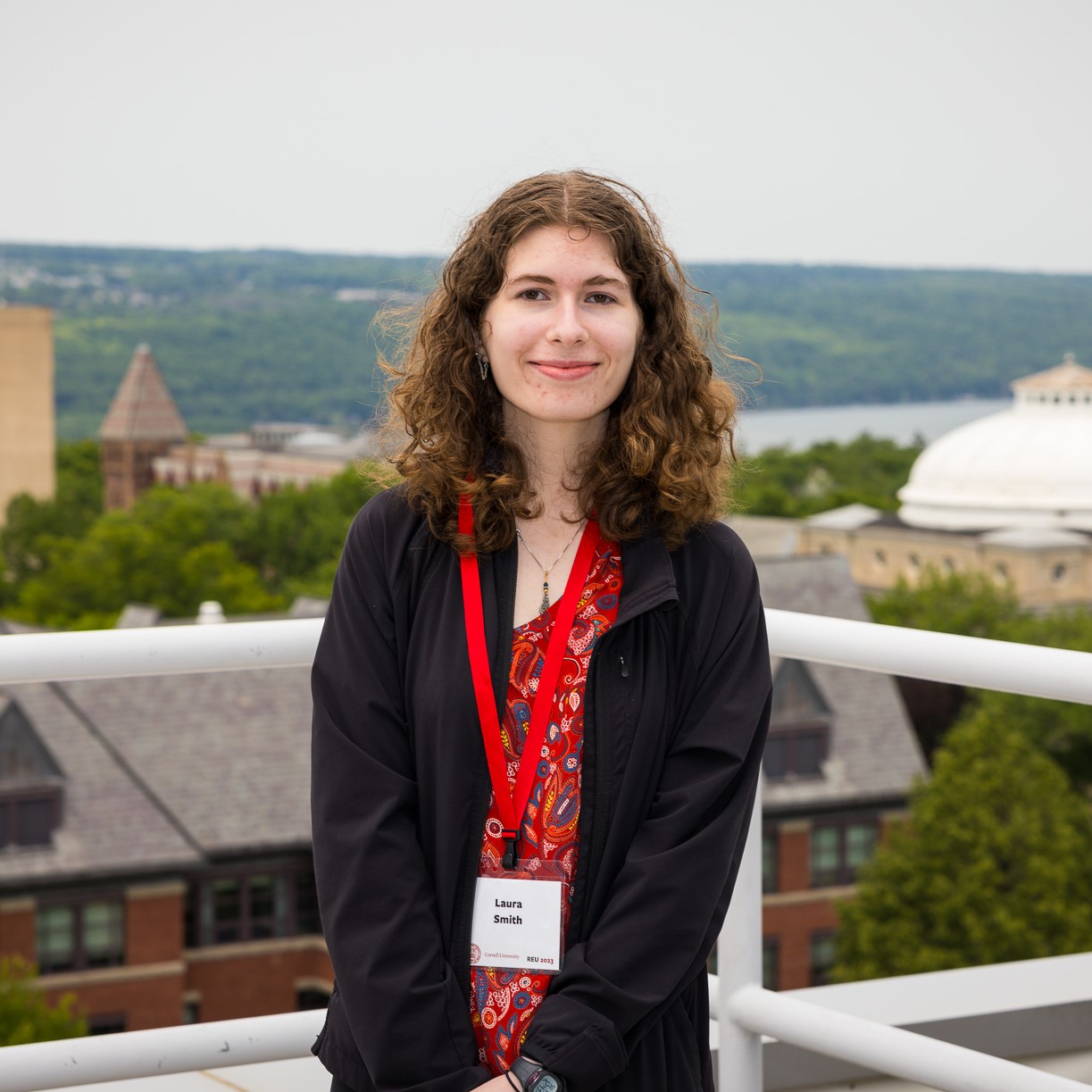Laura Smith

- Home Institution: Reed College
- Program: REU at CLASSE
- Semester: Summer 2023
- Expected Graduation Year: 2025
- Mentor(s): Jonathan Unger
Q&A
What is your home institution and your expected graduation year?
I’m a physics major from Reed College in Portland, OR. I’ll graduate in 2025.
Which CLASSE summer program are you a part of and who is your mentor?
I’m in the CLASSE REU, and my mentor is Jonathan Unger.
What is the research you are engaged in and what have you accomplished so far this summer? What are you hoping to accomplish by the end of your project?
I’ve been working on the Rapid Cycling Synchrotron (RCS) which is a component of the upcoming Electron-Ion Collider (EIC). Currently being designed to be built in the 2030s, the EIC is a new accelerator-collider that will allow researchers to investigate the atomic structure through the high energy collisions of electrons and ions. The EIC’s primary function is to investigate gluons. Gluons are the carriers of the strong force, which is the force that "glues" the atom together. The RCS will be responsible for accelerating electrons up to the desired energy.
I’m hoping that by the end of this project, we’ll have a better understanding of the parameters needed to merge the electron bunches. I am also hoping that we’ll have a better understanding of the dynamic aperture at static energies and during ramping. This is important because we need to have an initial understanding of the size of this region, so that it can then be optimized. We want to make sure this region fits within the dimensions and design constraints of the RCS.
What are the impacts of your research for the general public?
This research will hopefully allow the development of the RCS to progress further, which will bring us closer to the construction of the EIC. Our world is composed of atoms but we don’t fully understand their inner structure and what keeps them together. This is where the EIC comes in, as it will allow us to ideally learn more about the atomic structure. This is pertinent to the general public as experiments in the EIC will hopefully allow us to understand more about what composes the building blocks of our universe! It’s really exciting to get the chance to learn more about gluons and the strong force! Without gluons and the strong force, there would be nothing to hold atoms together. It would be amazing to understand more about how they actually work to accomplish this! Hopefully to the general public it’s just as exciting to get the opportunity to learn more about what holds together the building blocks of our universe.
What are you enjoying most about this research/summer experience?
I’ve really enjoyed getting the opportunity to immerse myself in accelerator physics and learn as much as I can about how accelerators work. It was incredible to get the chance to walk in the Cornell Electron Storage Ring (CESR) tunnel and actually see the essential components of an accelerator I read and learned about.
Overall, I really enjoyed seeing everything come together. From reading about the concepts, to applying them to my Mathematica simulation, and then finally my work in figuring out where the particles were stable (the dynamic aperture). It felt like everything built upon each other in a logical way. It’s really gratifying to know that I learned so much over the course of ten weeks.
What are you finding the most challenging about this research?
The most challenging part of this research was when I would hit a roadblock and it would sometimes be difficult to figure out the best course of action to proceed forward. I mainly hit roadblocks when I was trying to set up my code to either run my simulation or the program to figure out the dynamic aperture. I’ve only had basic coding experience before this research experience. Those frustrating moments where my code wasn’t working became gratifying because I learned what I did wrong and improved my coding abilities!
How has this experience changed your view about being a researcher?
Previously, I’ve done wet-lab oriented research. In this experience, it was interesting to get the opportunity to conduct research in a different way through the usage of simulations and computer programs. It’s shown me that there are many different ways to do research and that there’s endless possibilities to take a career in research/science. I feel that many people view doing research as someone in a lab combining chemicals or building equipment in a lab, but it definitely is not limited to this!
